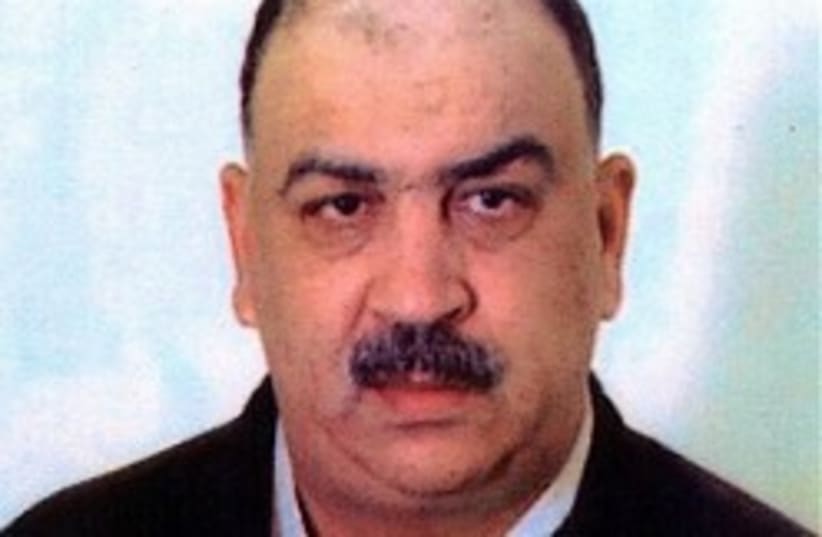A man who headed a terror network was sentenced Tuesday to life in jail for plotting attacks in Morocco, holdups in Europe, large-scale money laundering projects and arms trafficking.
Abdelkader Belliraj, a 51-year-old dual Moroccan-Belgian national, had faced the death penalty. He maintained his innocence throughout the proceedings.
He was charged along with 34 co-defendants.
In addition to the charges he was tried on, Interior Ministry officials said publicly after his arrest they suspect Belliraj of having taken part in several murders in Belgium, a robbery in Luxembourg, combat training in Iran or Lebanon and meeting with Osama bin Laden in Afghanistan a few days before the Sept. 11 attacks.
Belliraj's co-defendants included opposition Islamist politicians, a university professor, a police superintendent, and a Moroccan journalist working for Al-Manar, the television channel run by Lebanon's hardline Hezbollah group. The 34 co-defendants were handed sentences ranging from 30 years in prison to one-year suspended sentences.
The trial, which began in October, was the North African country's highest-profile terror case. It embodied some of the worst fears of security chiefs in North Africa and Europe: Radical Islamists who double up as gangsters and use their dual citizenship to spawn an international terror network.
The matter came to public attention in February 2008 when Moroccan police announced it had caught one of the largest terror cells to-date, arresting at least 32 people across the country.
In rare public comments at the time, Interior Minister Chakib Benmoussa was quoted by the official MAP news agency as saying that the "Belliraj cell" was suspected of plotting bombings and planned to assassinate Cabinet ministers, army officers and members of Morocco's small Jewish community.
The minister said Belliraj had ties to al-Qaida and to its North African offshoot and was suspected of involvement in six assassinations in Belgium from 1986 to 1989, though he didn't provide any details. The Belgian media have speculated those murders may have included the 1989 killings of the former rector of a Brussels mosque and the chairman of a committee of Jewish groups.
Benmoussa also accused the Belliraj cell, or Belliraj himself, of raising money through various holdups, including the €17.5 million ($25.6 million) robbery of an armored truck company in Luxembourg in 2000. The money was reportedly invested in tourism and real estate projects in Morocco, where relatives of Belliraj are suspected of laundering some of the cash in hotels in the southern tourist town of Marrakech.
During the trial, Belliraj denied the accusations against him. His lawyer, Taoufiq Idrissi, cast Belliraj as a Belgian street market vendor and devout Muslim who is being framed and made to look like a big-time player.
"He's not a choirboy, but he's not a hired-killer either," Idrissi told The Associated Press in an interview before the verdict. "He considers himself a Muslim predicator with a mission to consolidate fraternity and cooperation among Muslims."
Idrissi added it was Belliraj's role as a predicator that explained his trips to countries like Algeria, Lebanon or Afghanistan with active Islamist groups.
The lawyer didn't deny that Belliraj met with Osama bin Laden in Afghanistan just eight days before the Sept. 11 attacks, but quoted his client as telling the judge in Sale during the proceedings that: "'I, for one, have no problem with bin Laden.'"
Idrissi argued the case against his client was riddled with inconsistencies. Some of the evidence in the case was not made public because it is classified, a senior Moroccan security official has told The AP.
Idrissi and lawyers for the other defendants have complained about the length of the trial and the unfounded accusations, echoing criticism by some human rights group that Moroccan police indiscriminately arrest all those with ties to a suspect, and sometimes obtain confessions through torture.
Morocco has imprisoned more than 1,000 suspected terrorists since 2003, when al-Qaida-linked extremists killed 45 people in a string of attacks in Casablanca, the country's economic powerhouse.
| More about: | Morocco, Osama bin Laden, Chakib Benmoussa, Africa |
